Three Things To Take Away From EverQuest Next's Demise
Friday's announcement that EverQuest Next would never see the light of day sent shockwaves through the gaming industry. Fans, media, and developers all reacted to the news with emotions ranging from dismay to sadness to anger. On some level, it seemed inevitable, given how long it had been since we'd heard anything from Daybreak Game Company, but some – myself included – still held out hope that the ambitious MMORPG would still see the light of day and enliven a torpid genre.
That hope is gone now, along with more wasted time and resources than can fit in all of Norrath. It's going to be interesting to see how all the players, from Daybreak to the MMO industry as a whole, fare in the light of EQN's cancellation, but here are a few things I think will result from the tragic loss of the newest “next big thing.”
Daybreak is in big trouble
When's the last time Daybreak Game Company launched a game of its own? Fully launched, not early access, and not an imported game made by someone else, like Dragon's Prophet?
The answer is PlanetSide 2, back in November 2012. It's been three and a half years since the company created and fully brought a game to market, a streak that should end with Landmark and H1Z1: King of the Kill this year. Those games have certainly brought in money, but still – not being able to actually finish a game isn't a great sign.
Last year, when talking about the issue of having so many unfinished games, John Smedley told me that “the only solution is to look toward the company and the track record they have.” That track record is pretty ugly, when you examine it closely. Since PS2's launch, eight SOE/Daybreak games have been shut down – which does include published games like Dragon's Prophet and Bullet Run – or nine, if you count EverQuest Next.
As I've said before, I think this has little to do with Columbus Nova. Sony Online Entertainment was in trouble long before it became Daybreak Game Company. Of those game closures, only one (Dragon's Prophet) took place under the new management. Columbus Nova isn't publicly traded, but Sony is, and I discovered the following nugget on page four of Sony's FY 2014 financial report, dated March 31, 2014:
Any way you slice it, “$60 million write-off” doesn't sound good. Three SOE games – the ones mentioned here along with Magic: The Gathering – Tactics – shut down the last week of March 2014, the same time of that report, with two more in July. Eleven months later, SOE was sold to Columbus Nova.
If EverQuest Next had been progressing more smoothly, and other games had been doing well, Sony might not have been so eager to sell the studio off. Don't blame Columbus Nova for killing off EverQuest Next; Daybreak's been struggling for years.
This might be the end of new full-featured AAA MMOs
No, I'm not going to say “MMOs are dead,” like some others have. But there are still a lot of people out there who want to recapture that initial glorious experience they had – probably in World of Warcraft, but maybe in another game – of an all-encompassing MMO that presented a huge and glorious world with everything to do and everyone to do it with, taking over their lives and becoming the only thing they wanted to do for years on end.
My suggestion: It ain't gonna happen, and it's time to stop waiting for it.
There are games like that out there: Guild Wars 2, The Elder Scrolls Online, Star Wars: The Old Republic, and yes, still World of Warcraft. EverQuest Next was supposed to be another. But those kind of mega-huge, AAA MMOs are big risks for companies, the likes of which they're going to be even more averse to now that EQN has failed.
Need further proof? Blizzard knows how to make this kind of game, right? And even that company pulled the plug on its “next big thing,” Titan.
I don't see anything on the horizon that fits in the “something for everyone” MMO category now that EQN is gone. Instead, there are smaller, more custom-fit MMOs, and MMO-like games, that might do great PvP or crafting or exploration or PvE – but not all at once. Those can be great fun, but if you're waiting for the next big thing to come along, it's going to be a long wait, if it comes at all. It's better to settle for what you've got now, whether that be an existing AAA MMO or a smaller, niche title that suits at least one of your needs.
Free-to-play is undeniably shrinking
Take this statement two ways. First, as I wrote about a few weeks ago, I think we'll see fewer free-to-play games on PC going forward. Just like it wasn't enough to try and make a game “just like WoW” and have it succeed, it's not enough to slap a free-to-play label on an MMO now and think that's a recipe for success. Everyone's doing it, so it's just the same as if nobody's doing it. It doesn't make your game stand out at all, and might hurt it in the long run, depending on your implementation.
The second point is that F2P games themselves are “shrinking.” This is somewhat tied into the last point, in that I think F2P might be more easily executed with smaller titles that don't “try to do too much,” such as world-spanning MMOs. When you have that many moving parts, it's nearly impossible to set up your cash shop that will please everyone. It might be better to have a single experience, such as a MOBA or arena battler or tank game that has relatively few dials to tweak – and less that can go wrong.
Daybreak Game Company, and SOE before it, seemed to be trying to change that. It was producing big, AAA games, and boldly announcing them as free-to-play – not after they failed to win fans with a subscription, but right from the start. Now we know that John Smedley hated F2P and that it wouldn't work for H1Z1 and Landmark and probably not EverQuest Next. Future companies will look at what happened to Daybreak and shy away from going full-bore into F2P for their big game projects.
(A final thought on Smedley... I know he's gone from the company now, but the bulk of the development and the creative vision behind these games came on his watch. I'm not sure how much was him pushing for something that couldn't be achieved or from his superiors dictating terms to him. If I'm going to be fair, I think he's responsible for some of the issues DBG is facing, but not the sole reason. What I do know is that it makes me wary of anything else he promises, especially after Hero's Song's short-lived Kickstarter disaster.)
I really don't think we're going to get a big, new Free MMO, not for a long time and maybe not ever. We'll get conversions, like Guild Wars 2 or SWTOR, but nothing like that will be promised as F2P right out of the gate. That's not necessarily a bad thing; Final Fantasy XIV and ESO are doing just fine, and the existing crop of F2P and B2P MMOs is quite strong. Now's a good time to revisit something you may have written off when it launched, to see if it better suits you now.
And, as much as I'd like to say this will put the brakes on early access/Kickstarter/throwing-your-money-at-a-game-company-based-on-pie-in-the-sky-promises, that's probably just wishful thinking. It'll take something more calamitous than this failing (Star Citizen?) to keep people from jumping on the hype train when they desperately want to believe. In any case, are you willing to believe anything Daybreak says about a future product any more? I'm not, and that might be the greatest damage done by this whole affair.
Hey, are those Landmark refunds still available?
Related Articles
About the Author

Jason Winter is a veteran gaming journalist, he brings a wide range of experience to MMOBomb, including two years with Beckett Media where he served as the editor of the leading gaming magazine Massive Online Gamer. He has also written professionally for several gaming websites.
More Stories by Jason WinterRead Next

Defiance fans have been hungry for new story content for some time now, and today Trion delivers!...
You May Enjoy

Even if it does have some quirks.
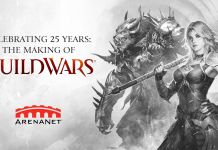
The video will offer insight into what went into making the popular IP.

These heroes are some of the best ban targets to consider in Season 5 & Season 5.5
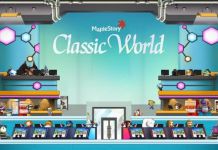
The event is free and will take place in Los Angeles.
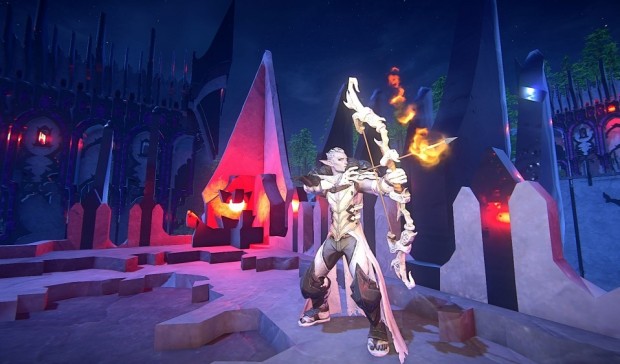
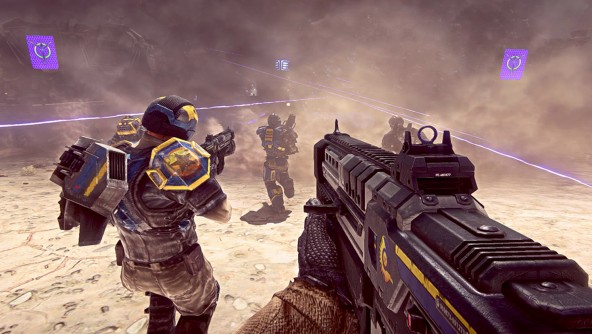

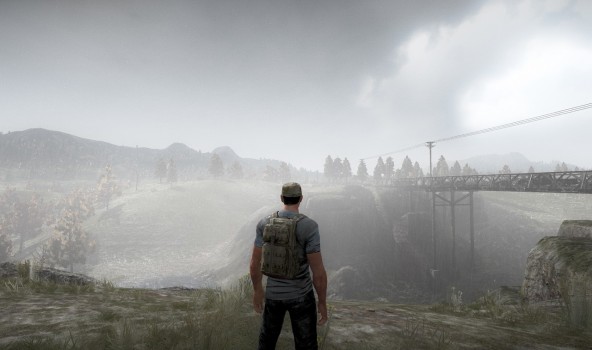
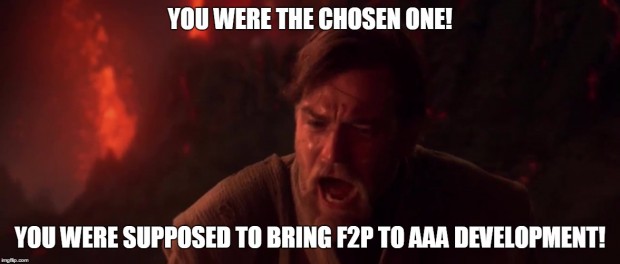
-
It wont be the same as in the past, where sometimes companies pushed the limits of their budget as far as they could, to make ambitious and high quality games that players went crazy for, because developers and publishers don't think on this level nowadays. They want assured profits, not high risk high reward, because nowadays its too much work and too much money to create large, ambitious and original games. Admittedly, the market for video games is so saturated that the level of effort required to create something that is wholly original is exponentially higher, but regardless I think developers who truly care about video games should always be striving to push boundaries and make waves.
-
The only people who seem to have any real passion for game development are certain small teams or solo developers who are near impossible to find without digging through the vast sea start-up "development studios" who are just in it to milk crowdfunding for easy cash (ex. minecraft and/or survival copy/paste games and "innovative" 2D puzzle platformers). Not only that, but many of these small development teams who actually do have passion, end up losing it quickly when they are confronted with the sheer scale of video game development. Then, of course, there are those who, despite a successful crowdfunding campaign, are simply unable to come up with enough money to realize the game they had in mind.
-
With VR being the only real ray of sunshine, the future of the gaming industry just looks... very, very bleak :/
EQ's popularity has become far too small. The memory of it's heyday is just too faint and as you have illustrated there was no concerted commitment by SOE.
There are exceptions of course. Star Citizen is not attached to any IP but rather it has a massively popular creator. It still needed to garner massive financial commitment which it did creatively.